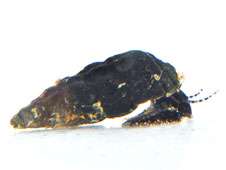Parasitic infection helps sea snails survive acidified seawater

Flatworm-infected sea snails survive better in more acidified seawater than non-infected ones, surprising new University of Otago research has found.
The findings emerge from a 90-day experiment that examined death rates of the New Zealand mud snail in seawater at current pH levels and in conditions predicted for the years 2100 and 2300.
While the Department of Zoology researchers found that survival rates of infected snails showed little change between each condition, uninfected snails died at higher rates in the acidified seawater.
Study main author Dr Colin MacLeod says the likely explanation is that compared to uninfected sea snails, infected ones have more energy available to deal with the increased metabolic costs incurred in acidified seawater.
"Snails infected by flatworms are invariably 'castrated' by these parasites, meaning that they no longer expend energy on reproductive activities. This leaves them with more energy to maintain their acid-base balance and shell integrity in the acidified conditions," Dr MacLeod says.
He says the findings likely apply to a range of other marine organisms.
"Our study strongly supports the growing consensus that parasitic infection must be carefully taken into account in attempts to accurately assess the impact of ocean acidification on ecologically and commercially important marine species," he says.
The study appears in the UK Royal Society journal Biology Letters.
More information: Parasitic infection: a buffer against ocean acidification? Biology Letters, rsbl.royalsocietypublishing.or … .1098/rsbl.2016.0007
Journal information: Biology Letters
Provided by University of Otago




















